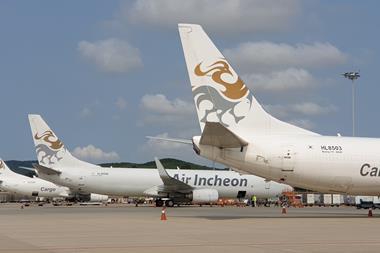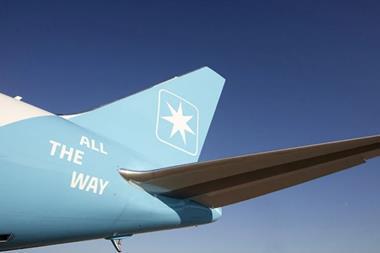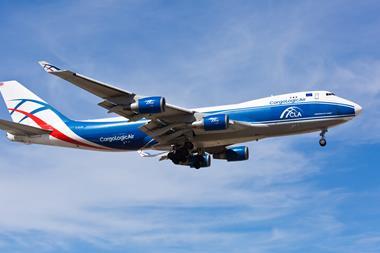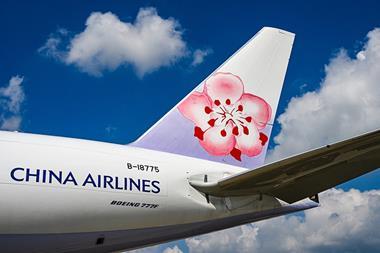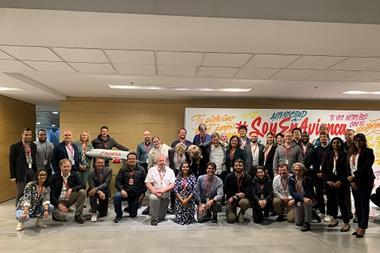The launch of a Boeing 777 Freighter conversion programme is moving ever closer as the aircraft becomes the freighter of choice for airlines.
The start of this year has seen several orders for production B777-200F aircraft. At this week’s Farnborough Airshow DHL announced a deal for 14 of the plane and Volga-Dnepr/CargoLogicAir revealed a commitment for 29 of the freighter.
Speaking at the Cargo Village conference at the airshow, (IAI) Bedek Group vice president marketing Rafi Matalon said the company was very close to announcing a conversion programme for the B777-200 and B777-300ER.
He said that the B777-300ER was likely to be the main programme because its length means it can carry more in terms of volume, although weight wise it can carry around 5 tonnes less than the -200.
“The capacity is needed, the demand is there,” said Matalon. “The B747F comes with four engines and everybody is looking at the operational costs and in a very natural way the B777F is becoming the most popular widebody in the field of airfreight.”
Matalon estimated the total cost of the feedstock freighter and the work would put the total cost of a B777-300ER conversion at around $60m, compared with $150m for the cost of a new freighter.
Later on the panel, Matalon asked CargoLogicManagement fleet development director Paul Nolan why it had decided to opt for the production freighter rather than discuss the potential for conversion.
Nolan responded: “Rafi, as soon as you produce the Supplemental Type Certificate (STC) and produce the numbers, we will look at them.”
He added: “Firstly, the feedstock has to be there and the age has to be right, around 15-18 years. If you miss that window, it probably is not right for us.”
“The people who are driving [aircraft investment] are the investors. It’s the investors who are putting the money in and that is driving the economics behind any commercial freighter.
“If you tell me you can get a B777 currently for $50m, spend $10m on the conversion, and you have a $60m aircraft, let’s keep talking.”
The Boeing Company vice president of product strategy and future airplane development Mike Sinnett pointed out other factors to consider when deciding between a conversion and a production aircraft.
He said some investors may prefer to make a large investment upfront on a production freighter and then benefit from lower maintenance costs, better reliability and better residual value.
Others may prefer to pay less upfront and spend more on maintenance and operation of the aircraft over time.
Ordering production freighters also means that all the aircraft will be the same, Sinnett added. For conversions it can be difficult to find 20 aircraft that are all identical.
Earlier on in the discussion, Nolan also gave more detail on the reasoning behind the Volga-Dnepr/CargoLogic order for 29 B777Fs and five B747-8Fs.
He explained that the order was part of the overall group’s vision for 2052, while it mainly opted for the B777F rather than the B747-8F because there was more capacity on the production line.
“Anytime you make a commitment to purchase an aircraft you are making a 20-30 year commitment. Therefore, we had to think carefully about what we were going to do and what was going to be the future aircraft.
“The B777F was the aircraft of choice. The B747-8F programme seems to have stalled slightly (production rates are down to six per year) but the B777F programme is in place.
“The vision of the Volga-Dnepr Group is to have a global airline group so that is why we have CargoLogicAir in the UK and AirBridgeCargo, Atran and Volga-Dnepr in Moscow and there are developments afoot for further airline developments.
“The overall ambition is to have operations, either through joint venture partners or dedicated carriers, globally and that is where we see the fit of the B777F.”
Regarding the group's global ambitions, it has been working on setting up an AOC in Germany.
Read more freighter operator news
Sign up to receive Air Cargo News direct to your inbox for free






